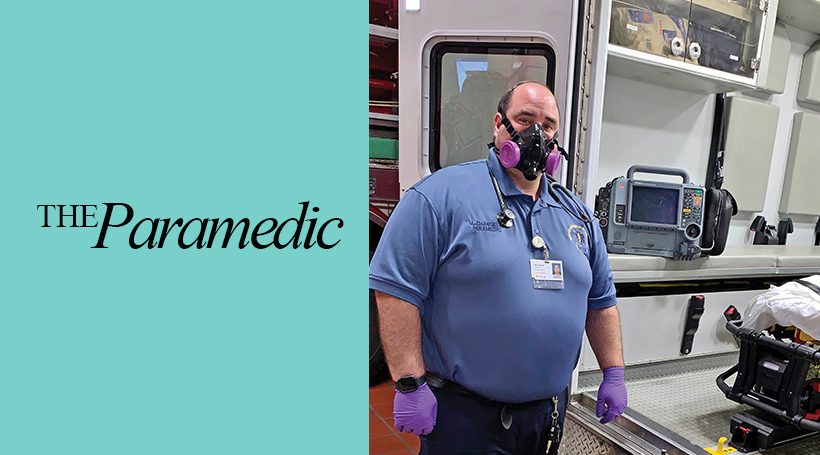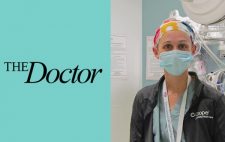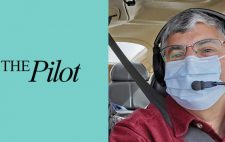Just months ago, a typical 911 call for “respiratory distress” would have sent Virtua Paramedic Michael DeAngelis flying through the doors of a patient’s home to get right to work. As his ambulance raced to the ER, he would be administering nebulizer treatments to open the patient’s ailing lungs.
That routine seems so quaint now.
With COVID-19 ripping through South Jersey, giving aerosol treatments in ambulances is out of the question. Tiny droplets of virus could easily spray around inside the enclosed vehicle. But there’s a workaround: treatments are now administered intravenously by needle.
Although there’s some delay, as the new protocol is to treat patients outside of their homes, he says the medicine is just as effective.
“Slowing everything increases everyone’s anxiety,” DeAngelis says. “The challenge is to keep the level of care while decreasing risk. We’ve had to be creative to find other ways to get the same results.”
With 20 years under his belt in emergency services, he loves his job, even as the past few months have been the most challenging and stressful in his professional career. In February, when COVID-19 first hit the region, he treated a man who later tested positive. DeAngelis was not wearing proper PPE and quarantined at home until he was cleared to work again. EMTs now take precautions as if every patient has the virus.
“Every call comes with its own unique stress level,” says the Audubon father of 2 whose wife also works in healthcare. “The saddest part is that people are so scared to go to the hospital. By the time we see someone, the disease process has often gotten to the point where they’re not breathing anymore. A lot more of them are coding on us.”
With doctors strained by the demand and hospitals forbidding visitors, paramedics like DeAngelis are often the first medical professional seen by the patient in distress, and sometimes the last one seen in person by their family.
On a recent call, his crew treated a 21-year-old woman for seizures. Back in the day, her mother would likely have been permitted to ride in the ambulance. But DiAngelis had to explain to the mom that she wouldn’t be allowed into the hospital.
“I felt really badly about that,” he says. “If it was my daughter, I would want to be in the hospital with her.”














